Anxiety is an uncomfortable state of intense worry or fear that can adversely affect our quality of life and potentially leads to inflammation and physical illness.
Anxiety disorders are the most prevalent mental health condition today, affecting up to 30% of the population at some point in their lives. Depending on the severity of the symptoms, doctors prescribe psychotherapy, antidepressants, and anti-anxiety medications.
In recent years, health professionals have been paying more attention to dietary supplements and their role in supporting mental health, possibly increasing serotonin and dopamine levels, just like anxiety medication. The supplements’ effectiveness depends on the cause and severity of the disorder.
This article lists the 17 best herbs and supplements for anxiety, explains how they work, and how to take them.
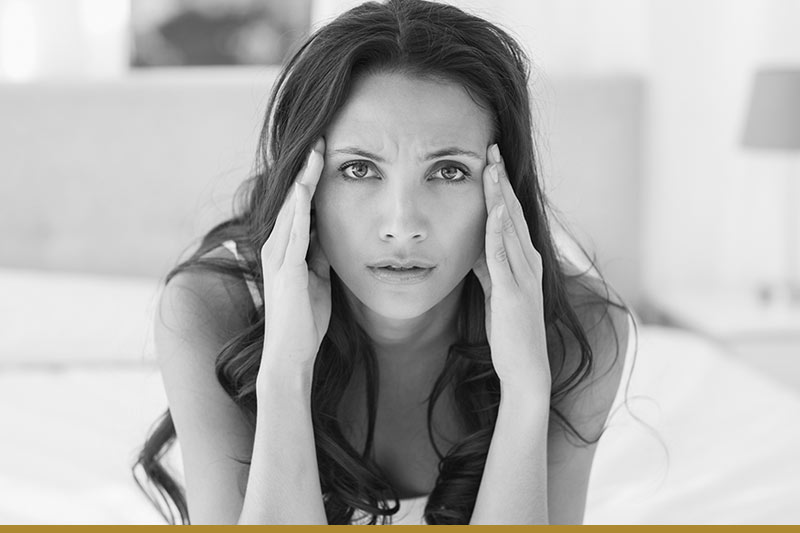
The following products are a blend of natural ingredients carefully selected to relieve anxiety, reduce stress, and improve a patient’s overall health, as recommended by the experts at Vibrant Vitality Clinic.
Consult your healthcare provider before you add any new supplement to your dietary and medication regimen.
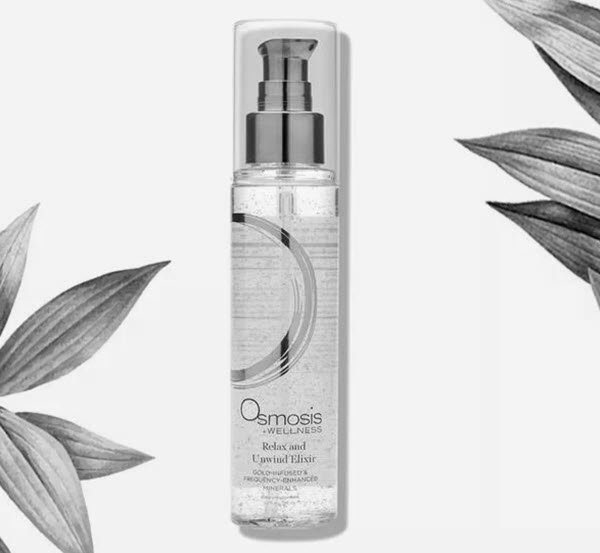
Osmosis MD is a reputable brand endorsed by medical professionals and holistic estheticians. Their Relax & Unwind Elixir uses clinically proven frequency technology and contains a proprietary fulvic solution with 24-karat edible gold to promote tranquility, relaxation, and healthier sleep.
The manufacturers recommend taking 5 pumps 2-3 times daily for relaxation and 5 pumps 30 minutes before bedtime for sleep issues. Take 7 pumps if you weigh more than 175 pounds. Shake before use.
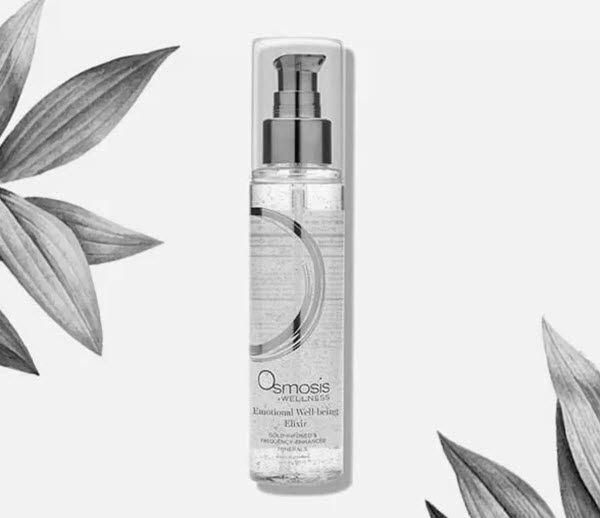
Emotional Well-Being also belongs to the line of Osmosis MD elixirs using the same frequency technology and ingredients as Relax & Unwind – a fulvic blend and 24-karat edible gold – but with frequencies targeting slightly different issues.
It helps increase serotonin, harmonizes negative thinking patterns, and provides natural support for anxiety.
Take 5 pumps in the morning and evening, or 7 pumps if you weigh over 175 pounds. Shake well before use.
Relora is a patented blend of two plant extracts – Magnolia officinalis (Magnolia bark) and Phellodendron amurense (Amur cork tree). Several studies on these ingredients suggest they help reduce anxiety and stress, improve sleep, balance digestion, and promote relaxation.
The blended herbs are used as a dietary supplement 2-3 times daily, usually at mealtime.
Note: Learn more about the benefits of Relora for mood and weight management.
Scientists have studied many herbal remedies for their impact on mood and mental health. Data suggests that adding more beneficial natural ingredients to our diet or taking them in supplement form can help improve various bodily functions and balance hormones that affect our mental health.
Note: Learn how a hormone detox can help relieve anxiety.
The following ingredients have been used for centuries to promote relaxation and are often found in products marketed for anxiety relief.
Numerous studies point to vitamin D’s impact on our overall health, suggesting this vitamin promotes antimicrobial activity, regulates the production of inflammatory cytokines, and supports the immune cells in defending against pathogens. Recent research also links vitamin D deficiency with symptoms of depression and anxiety, underlining the need for increased vitamin D levels in patients with mental conditions.
The sun is the primary source of vitamin D. Health experts recommend spending at least 15-20 minutes in the sun daily, but not during peak hours in summer, to avoid burns and the risk of skin cancer.
Vitamin D can be difficult to obtain through food, with fatty fish and fish liver oils providing the largest amounts. Dietary supplements are the easiest way to get enough vitamin D for most people.
Vitamin D IV therapy is another option and the best solution for patients with deficiencies because intravenous administration enables the quickest delivery of concentrated vitamin D to body cells.
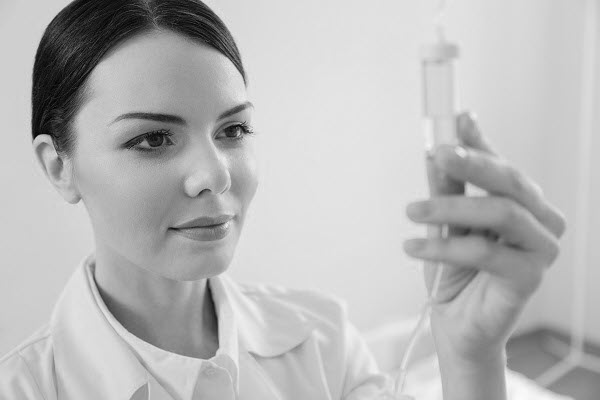
Vitamins from the B complex are studied for their role in mental health, and many of them are found to be effective in improving mood and anxiety disorders. Vitamin B1 helps maintain a healthy nervous system, helping to relieve stress. Vitamins B6, B9, and B12 support the synthesis of mood-regulating neurotransmitters serotonin, dopamine, and GABA. All B vitamins are involved in energy metabolism, indirectly contributing to a stable mood and reducing anxiety.
B vitamins are found in many foods, including:
A B vitamin complex in tablet form helps to ensure sufficient daily amounts. Vitamin B IV therapy is the best solution for people with nutrient deficiencies who need to replenish their stores quickly.
Note: Learn how vitamin B12 injections can help improve mood, relieve insomnia, and reduce anxiety and depression.
Magnesium is an essential mineral our bodies don’t produce but need for various bodily functions, including protein synthesis, blood glucose control, and muscle and nerve function.
Scientists have established a connection between low magnesium levels and anxiety, suggesting that taking required daily amounts of this mineral may enhance mood and reduce mild anxiety. However, they emphasize that more research is needed to confirm the beneficial role of magnesium in reducing anxiety.
Patients with anxiety symptoms (e.g., nervousness, panic, sweating, increased heart rate, sleep issues) may benefit from including magnesium supplements in their diet and eating more foods rich in magnesium, such as leafy greens, legumes, cocoa, seeds, and nuts.
Note: Low magnesium levels may also inhibit weight loss. Learn about the benefits of magnesium for weight loss.
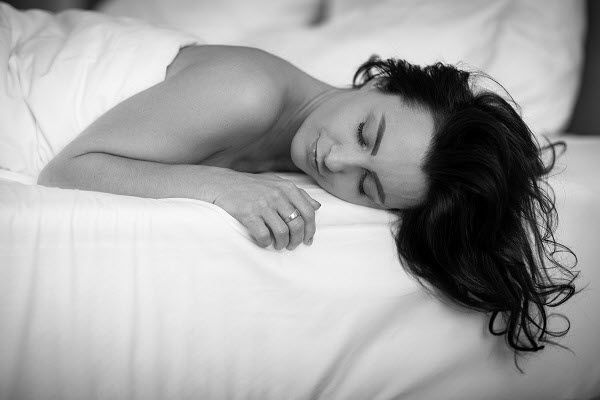
Melatonin, a hormone released by the pineal gland during nighttime, plays an essential role in regulating the sleep-wake cycle and maintaining sleep quality. Aging, light pollution, and stress are common causes of disrupted melatonin production, leading to sleep issues and aggravating existing health problems, including anxiety. Regulating sleep patterns is an important step toward improving these conditions.
Food doesn’t contain enough melatonin, so patients with anxiety disorders caused by sleep issues should take melatonin supplements in consultation with their healthcare provider.
Omega-3 fatty acids are essential fats that help to regulate various bodily functions, from blood clotting to inflammation. They are also involved in releasing the neurotransmitters serotonin and dopamine and the stress hormone cortisol. By regulating these neurotransmitters and hormones and lowering inflammation in the brain, omega-3 fats may help modulate the stress response, balance mood, and reduce anxiety symptoms.
Omega-3 fats are found in oily fish, plant oils, nuts, and seeds. Taking fish oil is the easiest way to supplement your diet with omega-3.
Chamomile is a flowering plant people worldwide drink as an infusion to relax and potentially reduce cold symptoms. Research on the link between chamomile use and anxiety is scarce, with only one randomized controlled trial showing the plant significantly reduces anxiety if taken in supplement (capsule) form. Its potential anxiolytic effects may be attributed to the anti-inflammatory properties of flavonoids in chamomile.
There is no recommended dosage for chamomile tea, but one or two cups daily are considered safe and beneficial. One cup contains a tablespoon of dried chamomile flower brewed in hot water.
Chamomile supplements are taken in capsule or tablet form, and the recommended dosage ranges from 200 to 1,600 mg divided into 3-4 daily doses. They should not be used with blood-thinning medication.
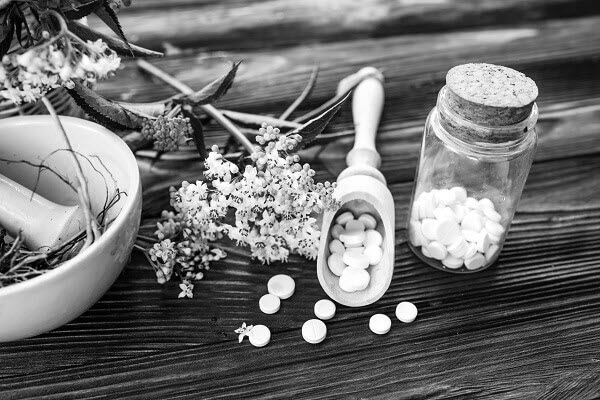
Valerian or Valeriana officinalis is an herb traditionally used in Europe and Asia as a sedative and sleep aid. Limited research on valerian and state (temporary) anxiety indicates it may help reduce symptoms by regulating serotonin and GABA, and increasing sleep time. It is widely used as an OTC medication for insomnia, stress, depression, and other mood disorders.
The optimal daily dose is 300-600 mg. Valerian causes no adverse effects when used as instructed by medical professionals. Otherwise, it can cause drowsiness, headaches, stomach upset, and nausea and limit the effectiveness of other medications.
Ashwagandha is a plant with a long history of use in Ayurvedic medicine. It belongs to a group of herbs called adaptogens, which strengthen our response to stress by lowering cortisol levels. Scientists hypothesize that ashwagandha has anti-inflammatory, antioxidant, and anxiolytic properties, exhibiting similar effects to benzodiazepines.
Ashwagandha is usually taken in capsule or powder form. The standard dosage for capsules is 300-600 mg, taken 2-3 times daily. Common dosage for ashwagandha in powder form is 1-2 grams mixed with water, juice, or other beverages and taken 2-3 times daily.
Saffron is an expensive spice derived from the plant Crocus sativus. It has been used as a traditional medicinal plant in China, India, and Persia for centuries. It has recently become a subject of research in the West due to its claimed therapeutic properties, including those that help relieve mood disorders.
In 2017, a non-systematic review reported that saffron and its active ingredients show antidepressant effects similar to those of pharmaceuticals, such as fluoxetine and imipramine, but with fewer side effects. Researchers concluded that saffron may be valuable in reducing anxiety as well because anxiety symptoms often co-occur with depression.
The recommended dosage depends on the patient’s condition. Patients with depression can take 20-30 mg of saffron extract daily, in consultation with their healthcare provider. Adverse effects are rare and include nausea, vomiting, and headaches.
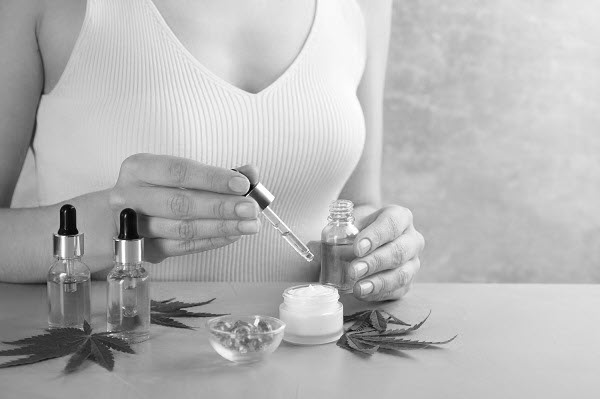
CBD, or cannabidiol, has gained popularity with marijuana legalization in the United States, Canada, and other countries. It is a non-psychoactive component of the cannabis plant with many reported beneficial effects. The Food and Drug Administration approved one CBD product (Epidiolex) for treating epilepsy.
The evidence for CBD’s anxiolytic effects is mostly anecdotal. Users claim CBD helps them relax, sleep better, and manage stress. A small study in 2019 suggested CBD has a calming effect on the central nervous system and may help with anxiety-related disorders.
CBD supplements can be used in tablet form, as a liquid extract, vape oil, and topical cream. There is no standard dosage, so make sure to consult a medical professional before using it.
L-theanine is an amino acid primarily found in green and black tea. Scientists have observed its antioxidant, immunity-enhancing, stress-relieving, antimicrobial, anti-inflammatory, antiaging, and anti-anxiety effects on animals.
A recent review of clinical studies suggests L-theanine may modulate neurotransmitters, increasing GABA, glycine, and dopamine levels, resulting in a calming effect on the mind. One small study showed it may improve insomnia symptoms.
L-theanine supplements usually contain 200 mg of the compound per capsule. The standard daily dose is typically 200-400 mg, but patients should consult their medical provider before starting supplementation.
Probiotics are live bacteria and yeasts that support a healthy digestive system, reducing inflammation and improving immune function. People typically take them when they have digestive issues, but probiotics also show the potential to reduce stress, anxiety, and depression.
Many neurotransmitters that affect mood, such as serotonin and dopamine, are produced in the gut not just the brain. Data from limited studies on rats suggest the positive effects of probiotics on our gut help increase serotonin and dopamine levels, positively affecting our mental health.
Probiotics are found in fermented foods such as kefir, yogurt, kombucha, and sauerkraut. People who dislike fermented foods can take probiotic supplements.
Note: Probiotics provide various health benefits, including those related to hormonal activity. Learn how they improve hormonal imbalances and what other vitamins and supplements help balance hormones.
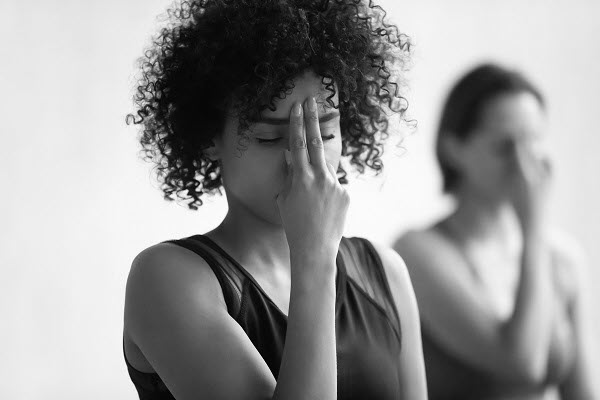
Ginkgo biloba is a tree species native to China. Gingko has antioxidant properties, thanks to flavonoids, and helps improve circulation, thanks to terpenoids. People use it worldwide as a natural remedy in teas and supplements to enhance cognitive function. Research now confirms the plant impacts serotonin, dopamine, and norepinephrine uptake, albeit through an unclear mechanism.
Ginkgo biloba may be safe to take as a dietary supplement. The optimal dosage is 60-240 mg daily for up to six months, according to instructions on the product label. This supplement is not recommended for patients who are pregnant, have a history of bleeding disorders and/or patients taking SSRI antidepressant medications.
Lavender is commonly used in holistic medicine and aromatherapy for its potential calming effects. The fragrance of lavender may help reduce anxiety by activating certain brain receptors, such as GABA receptors, which are involved in promoting relaxation and reducing anxiety.
Studies show that oral administration and inhalation of lavender essential oil are effective in lowering anxiety levels but recommend more research to uncover the specific mechanisms and effectiveness of lavender in anxiety management.
Dietary supplements may help improve anxiety-related conditions, but it’s essential to use them according to the guidelines of a medical professional.
A doctor will establish whether a patient has nutrient deficiencies and needs supplementation. Then, they choose the best supplement based on the patient’s existing conditions, potential allergies, medications used, and other medical and lifestyle factors.
Note that interaction between herbal supplements and certain medications (e.g., sedatives and blood thinners) may cause adverse effects.
Health professionals warn that taking supplements without including other activities that influence mental health, such as regular exercise and a balanced diet, won’t have the desired effect on anxiety and related symptoms.
| *Disclaimer These statements have not been evaluated by the Food and Drug Administration. This product is not intended to diagnose, treat, cure, or prevent any disease. |
Anxiety is an increasing health concern worldwide, potentially leading to more severe disorders. Besides conventional medication, lifestyle changes, and talk therapy, there are many alternative remedies that can help manage symptoms.
Emerging evidence shows promising results relating to the effect of herbal supplements on anxiety, but it’s essential to consult a trusted healthcare provider before starting a new supplement regimen.
Next, learn about the best supplements for stress.
| *Disclaimer These statements have not been evaluated by the Food and Drug Administration. This product is not intended to diagnose, treat, cure, or prevent any disease. |




4325 E Indian School Rd, Suite 130
Phoenix, AZ 85018
United States
(480) 422-2058
info@vibrantvitalityclinic.com
Monday - Friday: 9:00 am - 6:00 pm
Saturday: 9:00 am - 3:00 pm
Sunday: Closed
